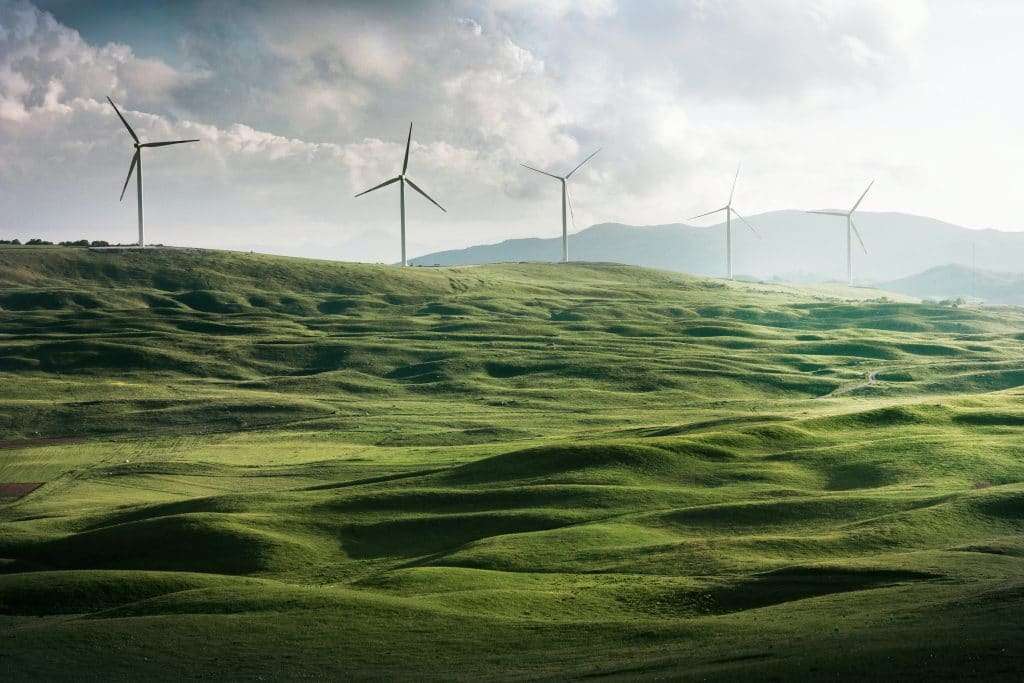“Sustainably sourced” is a term that’s often touted by brands claiming to be good for the planet. But just how eco-friendly is it really?
Nowadays, eco-friendly labels and certifications can be found everywhere, from furniture and cleaning products to clothing and food ingredients. The myriad of eco terms — “biodegradable,” “all-natural,” “fair trade,” “ethical,” and the like — can make choosing the right product confusing, to say the least. “Sustainably sourced” is another term that’s often touted by brands claiming to be good for the planet. But what does it actually mean?
What is sustainable sourcing?
“Sustainably sourced” is a popular phrase used on product packaging and in branding as a whole.
EcoVadis, a Paris-based company that provides holistic sustainability rating services for brands, defines the term as “the integration of social, ethical, and environmental performance factors into the process of selecting suppliers.”

“Sustainably sourced” is often used interchangeably with labels like “ethically sourced” and “responsibly sourced.” And while they may share certain similarities, these eco-terms do vary when it comes to denoting a product’s impact on the environment.
Responsible sourcing refers to the laws or responsible practices a company may comply with, such as working conditions or caps on pollution. Sustainable sourcing — an umbrella term that covers responsible sourcing—goes beyond legal compliance, taking into account various environmental, social, and ethical practices that can help to improve supply chains.
A sustainably sourced ingredient doesn’t just take into account economic considerations like labor laws. To be truly sustainable, a farmer must consider factors like greenhouse gas emissions, resource requirements like land and water needs, pesticide usage, and the overall carbon footprint of production, for example.
How to tell if products are sustainably sourced?
So, how do you tell if a product is actually sourced sustainably? There are a few green flags to look out for.
Transparency
For starters, a company that prioritizes sustainable sourcing in its supply chains will be transparent about the ethical practices it uses as well as its social and environmental impact. A company should be upfront about how materials are sourced, financials, and how employees are treated.
Be on the lookout for brands that publicize the strides they’re making in terms of sustainability — in addition to their downfalls.
Founded in 2001, Stella McCartney is well known for its commitment to driving sustainability in the fashion industry.

In 2021, the British luxury fashion brand launched its most sustainable collection yet. Called “Autumn,” the range promotes animal welfare and features 80 percent eco-conscious materials like “forest-friendly” viscose and organic cotton.
“I see now more than ever that we need to slow down and be more mindful, whilst simultaneously accelerating our push towards circularity and regenerative, nature-based solutions—remaining focused on having a positive environmental and social impact and making every action count,” McCartney said in the company’s 2020 Eco Impact Report.
The report outlines key sustainable milestones for the company, from banning PVC and implementing carbon offsetting to partnering with notable NGOs. More recently, in 2019, the company launched the Stella Sustainability Hub to help improve transparency of social and environmental standards in supply chains.
“As an industry, we have to measure our environmental footprint, and at Stella, our goal is to reduce that footprint, not to replace it,” McCartney told Vogue. “In order to be truly sustainable in any business, your model has to have self-imposed limitations. We aren’t perfect by any means and we are always looking to improve our means of sourcing.”
Companies that are truly sourcing sustainably will be transparent about their efforts. They may also offer life-cycle assessments and even use technology to allow for more transparency around the life of a product. Tools like QR codes on labels can help consumers see all of the steps in a product’s production cycle from sourcing to manufacturing.
Also, look for efforts like brands tackling their energy use, water use, and emissions. Recently, LVMH announced it will be tackling Scope 3 emissions across its supply chain in a partnership with Chanel. Efforts like this often require third-party verification and validation, reducing the risk of greenwashing.
Accreditation
Another way to vet sustainability is to check whether or not a company has any third-party certifications. Although they aren’t a catch-all solution when determining whether products are sustainably sourced, they are a great starting point.
Some of the more well-known ethical and sustainable certifications include:
- Certified B Corporation: certifies that a company balances profit with purpose.
- Forest Stewardship Council (FSC): ensures products are sourced from responsibly managed forests.
- Fairtrade: certifies a product was made in accordance with Fairtrade International’s environmental, economic, and social standards, including fair pay.
- Global Recycled Standard (GRS): certification for recycled content.
- EWG Certified: certifies that a product meets the Environmental Working Group’s health standards.
- Climate Neutral: certifies that a company is accountable for carbon emissions.
- Global Organic Textile Standard (GOTS): certifies textiles as organic.
Related on Ethos:
- How Much Does Sustainable Beauty Packaging Really Matter? Here’s What and Expert Says
- From Organic Fibers to Biodegradable Fabric: A Sustainable Materials User’s Guide
- Does Sustainable Fashion Have a Branding Problem?
- Stella McCartney’s $200 Million Sustainable Fashion Fund
- For the Conscious Consumer: 10 Facts About Sustainable Women’s Clothing Brands


